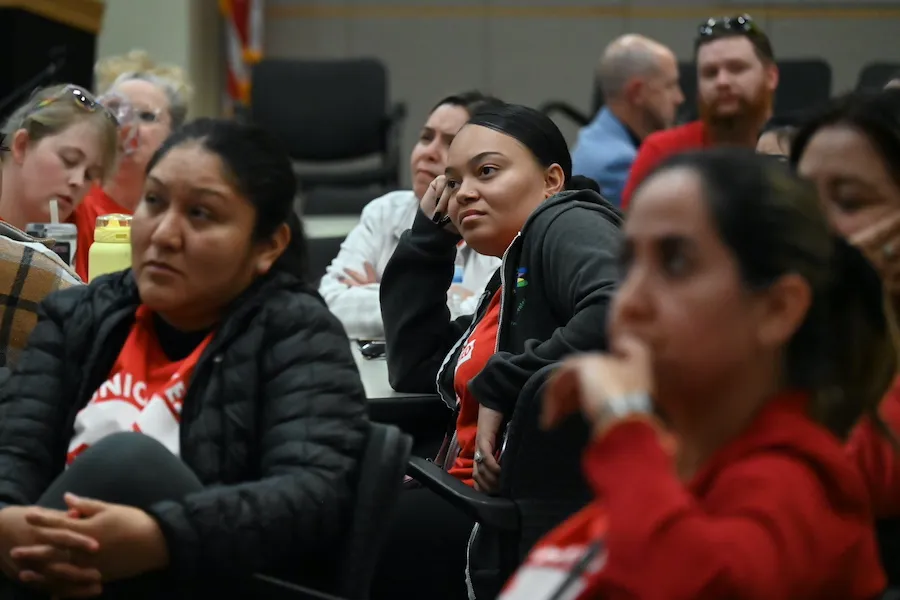Copyright ibtimes

As our global economy teeters on the edge of a productivity collapse, ignoring the intersection of Long COVID and neurodivergence is reckless. On September 22, President Donald J. Trump and Secretary Robert F. Kennedy, Jr. announced that insurance would begin covering the integrative medication, Leucovorin, for autism. At first glance, it might seem like a narrow policy shift, relevant only to a small community. But in reality, it could be a 'Turning Point' for modern medicine and the global response to one of the greatest public health and economic challenges of our time.We are no longer living in the shadow of a mass fatality event. COVID-19 has now ushered in a widespread era of chronic illness. Among individuals with a confirmed COVID-19 diagnosis, 36% are estimated to experience Long COVID symptoms. The scale is staggering. This is a global systems crisis affecting cognition, employment, education, and innovation itself.As a scientist, systems thinker, and someone living with both autism and Long COVID, inefficiency infuriates me. When that inefficiency costs lives, families, and billions in national budgets, frustration must turn into problem-solving. Twice in my own medical crisis, artificial intelligence (AI) suggested unconventional, "off-label" uses for existing medications that saved my life. Those interventions, as well as integrative medicine supplements and specialized vitamin forms customized to my genetic profile, are in excess of $300 a month. They restored my ability to first swallow, then to think and work. It was a reminder that precision medicine needs to be accessible and intelligently integrated into mainstream healthcare.The Leucovorin decision matters because it bridges what Western and integrative medicine have treated as separate worlds. For decades, integrative therapies have been used successfully to address underlying metabolic and neurological dysfunctions in autism. Now, specialists treating Long COVID are discovering parallel pathways: deficiencies in methylation, immune regulation, and vitamin absorption that Leucovorin directly addresses.The overlap is no coincidence. Genetic patterns linked to neurodivergence, such as those found in autism, are also present in Long COVID, autoimmune conditions like Mast Cell Activation Syndrome (MCAS), Ehlers-Danlos Syndrome (EDS), and immune dysfunctions that span all the way to rare immune deficiencies. The same biological vulnerabilities repeat across populations our healthcare system has long ignored.Critics might argue that adopting integrative approaches and modifying insurance coverage is too complex or too costly. But the data suggest otherwise. The average Long COVID patient sees between eight and nine specialists over a period of two to three years before receiving an accurate diagnosis. After diagnosis, the average wait time to see a Long COVID specialist is over two years, with additional wait time for any subspecialist. Those delays cost economies trillions in misdirected healthcare dollars and lost productivity.By contrast, early intervention guided by data analytics with combined medical models can identify high-risk individuals within hours, except for a unique customized integrative vitamin plan to treat malabsorption linked to genetics. There is no path forward without using this critical and synergetic combination. Modest changes in how we interpret routine biomarkers, such as electrolyte imbalances, inflammatory markers (such as homocysteine, C-Reactive protein, and tryptase), or immune irregularities, could save lives and drastically reduce expenses. We do not need an overhaul of medical school curricula to do this, but we do need a much more directed approach. Targeted certification programs could train practitioners in days, not years.These diagnostic efficiencies are only part of the equation. They must be matched by a deeper understanding of the conditions themselves and their true prevalence. MCAS and EDS, while once considered obscure, are now common among Long COVID patients. Dysautonomia, most commonly known through its highest incidence subtype, Postural orthostatic tachycardia syndrome (POTS), is detectable in about one-third of highly symptomatic Long COVID patients. Meanwhile, individuals with hypermobility spectrum disorders represent a 30% incidence of one of the severe forms of Long COVID.Many of these conditions share a root cause based on genetics that leads to chronic inflammation and immune dysregulation resulting from nutritional malabsorption. Integrative medicine already offers tools that address those root causes. When coupled with modern data analytics and genomics, these interventions can both alleviate symptoms and restore functionality. But none of that will matter if treatments remain outside the reach of those who need them.We have seen what can happen when innovation and urgency align. Operation Warp Speed compressed years of vaccine development into months by leveraging AI, real-time data, and collaborative governance. The same model could be applied to Long COVID and neurodivergence. The mission would be to identify high-risk populations, funnel those patients to certified specialists, use data and genetic testing to guide integrative treatments, and update insurance and regulatory frameworks at the pace of research. Regulatory lag is a silent killer. Traditional approaches that are human-dependent are obsolete in comparison to the sheer scope of medical data that has been collected since 2020, which is larger than any previously known dataset in the history of mankind. No person, or collection of researchers, can tackle a fraction of this size within a lifetime. Every month of delay and inaction compounds suffering and economic drain.With urgency and coordination, the return on investment could be immediate and significant. At a $1000 savings per patient, the ROI represents $3.1 trillion. Should the Leucovorin precedent expand to other integrative interventions, global gains could exceed trillions in restored productivity and reduced disability claims. That is before we even account for the incalculable human benefit. Think of parents returning to work, children regaining cognitive function, and researchers back in the lab.Some still frame this as a moral issue, a matter of compassion or inclusion. It is that. But it is also economics. Failing to accommodate neurodivergent individuals and those with Long COVID is both immoral and fiscally catastrophic. We are losing talent and money in equal measure. The longer we delay systemic reform, the steeper the cost becomes.We have reached a point where doing nothing is the most expensive option of all. A healthcare system that cannot adapt to chronic, overlapping syndromes will fail not only the sick but society itself. It is time to stop pretending that outdated models can manage 21st-century diseases. By optimizing healthcare through AI, genomic data, and integrative medicine, we can rebuild both human and economic resilience.We've been here before. When vaccines were first developed, the world doubted whether humanity could scale innovation fast enough to meet the crisis. We did. Now the challenge is scope. If we choose boldness again, we can transform this event into an age of unprecedented medical progress. The question is not whether we can afford to act. The question is whether we can afford not to.About the Author:Anne Delery McWhorter is a systems scientist, inventor, and founder of Quiet Calm, LLC and QC Consulting Global, LLC. A former software engineer, geophysicist, and public policy advisor, she brings lived experience with neurodivergence, immune deficiency, and Long COVID to her work in healthcare design and policy. She has supported more than 1.7 million families living with autism worldwide and continues to advocate for data-driven, equitable solutions to complex health challenges.



